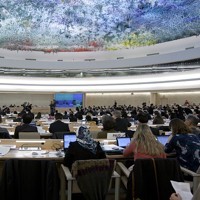
The State Department announced on Friday that the U.S. global AIDS coordinator, Ambassador Eric Goosby, will lead the new Office of Global Health Diplomacy while continuing to head the President’s Emergency Plan for AIDS Relief (PEPFAR). The appointment follows up on a plan announced earlier this year, when the administration shut down its Global Health Initiative (GHI), a program launched only in 2009. The global health community has had mixed reactions to the creation of the Office of Global Health Diplomacy, which is tasked with providing diplomatic support for the implementation of global health objectives and principles. “This is not […]






